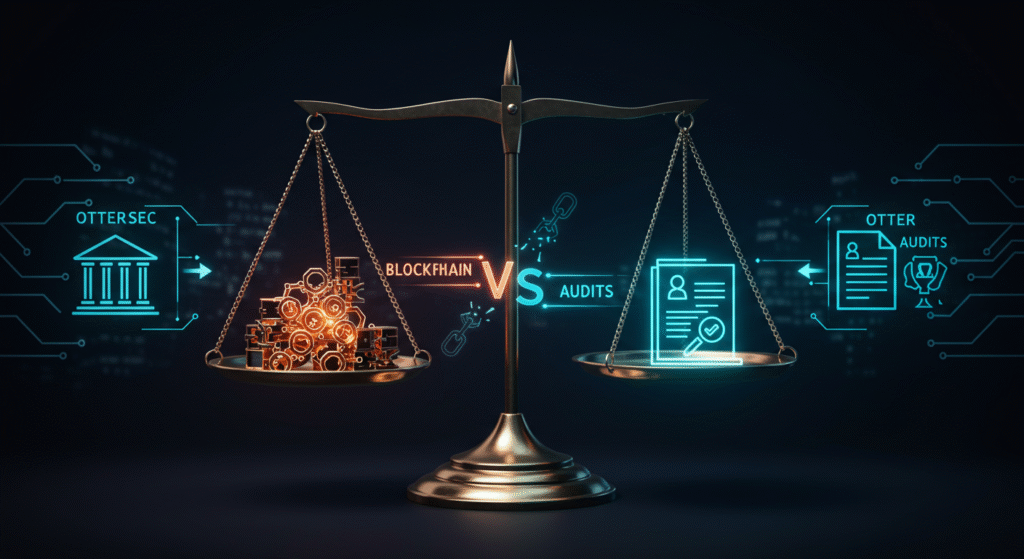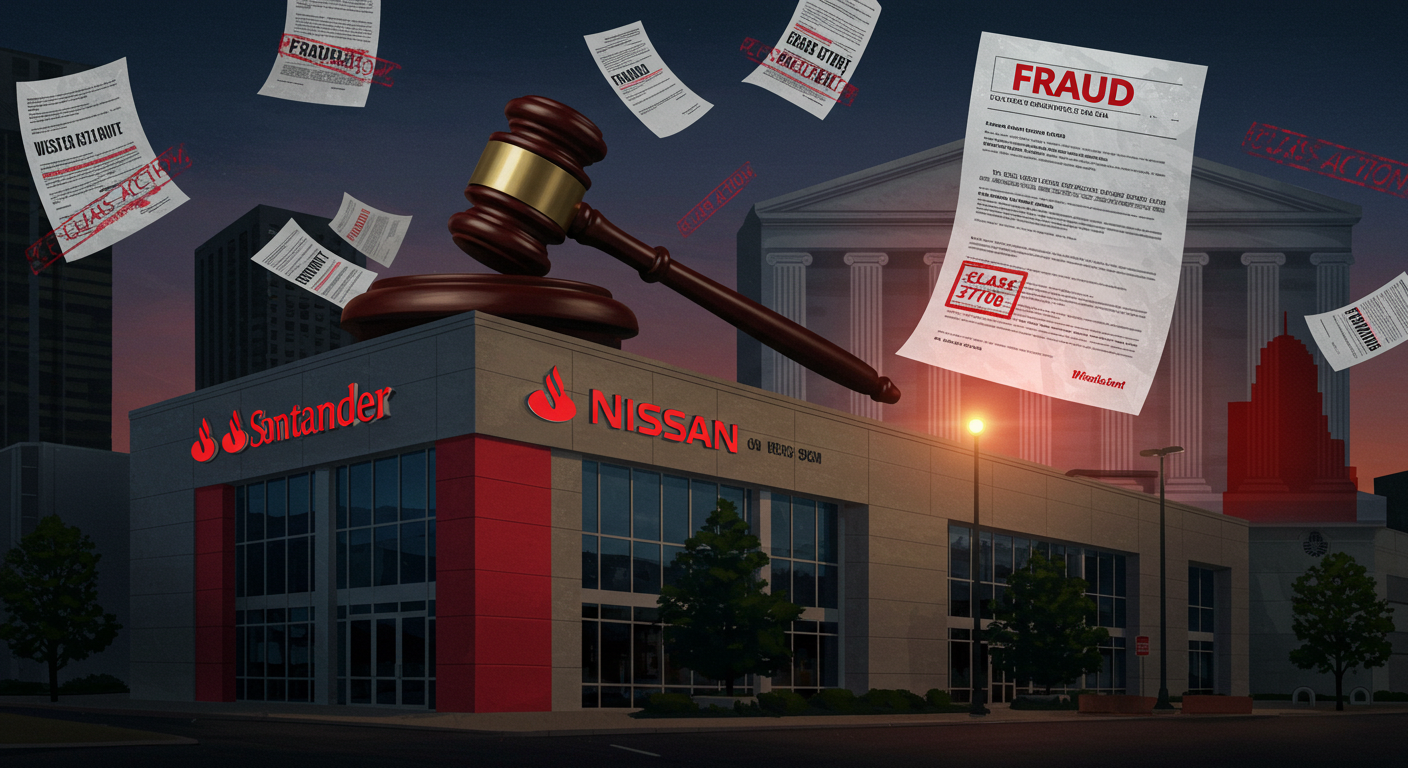Introduction
The world of blockchain and cryptocurrency is exciting. It lets people share money and data without banks. But it has big risks. Hacks and scams lose billions of dollars every year. That’s why companies like OtterSec are important. They check computer code to find problems before projects start. OtterSec has protected over $36 billion in value. They worked with big names like Solana and Wormhole.
In 2025, OtterSec faces a big court case. The lawsuit says the company broke rules when it closed. It also says the leaders took money and ideas that weren’t theirs. This case started years ago but got bigger this year. In January 2025, a court said some claims could go forward. This case makes people question trust in blockchain security checks.
What does this mean? It shows how audit companies run their business. It asks who owns things when problems happen. It also warns the crypto world about fights inside companies. My name is Orland Howell. I have four years of experience writing about lawsuit settlements. I help law firms and tech people understand hard cases. In this guide, I use very simple words to explain everything. We’ll cover who is involved, the main proof, and what it means for audits. Let’s start.
What Is OtterSec?
OtterSec is a company that checks blockchain security. It began in February 2022. Its job is to make smart contracts safe. Smart contracts are like automatic deals on the blockchain. They work without people in the middle. But mistakes in the code can let hackers steal money.
OtterSec does audits. This means they read every line of code to find problems. They suggest ways to fix them. The team has experts from coding contests and past jobs. They checked over 120 projects and found issues that could have cost over $1 billion. Clients really like them. The Solana Foundation said OtterSec is great for fast and smart work.
OtterSec also uses special tools. In 2023, they made a new way to prove Solana code is safe using math. This is called formal verification. It’s stronger than just looking at code. It proves there are no bugs in important parts. OtterSec works on blockchains like Solana, Ethereum, and Aptos. They charge for audits but share some reports for free to help others.
Before the lawsuit, OtterSec grew fast. It made over $1 million in just two months. They hired people in places like Maryland. But fast growth led to fights. Those fights ended up in court.
The Story of the Lawsuit
The OtterSec lawsuit is like a family argument that everyone can see. It started with two young founders. Robert Chen was 19 from Washington. David Chen was 16 from Maryland. They met at coding contests. David was too young to own a company, so his dad, Sam Chen, joined as a co-owner.
How It Started
In April 2022, Robert talked about selling OtterSec to Jump Trading, a big crypto company. He didn’t tell Sam or David. In May, Robert asked Sam to sell his share. Sam said no because he didn’t know the money details. In June, Robert closed OtterSec. Sam and David didn’t agree, but it happened anyway.
Sam died later in 2022. His wife, Li Fen Yao, took over his estate. She started a lawsuit in 2023. The case is called Li Fen Yao v. Robert Chen in a Maryland court. She says the shutdown was wrong. It took away Sam’s share without fair payment.
After closing OtterSec, Robert started two new companies: Otter Audits and RC Security in South Dakota. They do the same work as OtterSec. Yao says this stole OtterSec’s name and ideas.
Important Dates in 2025
- In January 2025, the court said some claims could continue. It stopped others.
- In February, news about the ruling spread. Crypto websites talked about trust in audits.
- In August, new papers added details about money fights.
- In September, there was a deadline for others to join a class action, if it happens.
The case is still going. More court dates are coming. But 2025 made it a big story.
Who Is Making the Claims?

The main person suing is Li Fen Yao. She is Sam’s widow and manages his estate. Yao lives in Maryland. She says OtterSec owed Sam a lot. When Robert closed the company, Sam lost his fair share. She wants money to fix this.
Yao’s lawyers say Robert broke trust. As a co-owner, he had to be honest. But he hid the sale talks and started new companies with OtterSec’s work. This hurt Sam’s estate.
Robert Chen fights back. He says closing OtterSec was legal. He claims there were big fights inside the company. Sam and David stopped helping. Robert says he bought all claims against others in 2022. He also sues David in a Wyoming court. He says David stole code used for crypto trading.
David Chen is the young co-founder. Now older, he faces claims of taking secrets. Robert says David took valuable code for safe crypto trades.
Other names in the case are Otter Audits and RC Security, Robert’s new companies. Yao says they use OtterSec’s name wrongly, like stealing a brand.
There’s no big class action yet. But some clients are watching. One report says a DeFi project is suing because OtterSec missed a bug that lost millions. That’s a side story. The main fight is about closing the company.
The Main Evidence
Evidence proves the claims. Courts look at papers, emails, and bank records. Here’s what matters.
Evidence from Yao’s Side
- Company papers show all owners had to agree to big changes. Closing needed votes. Emails show Sam said no.
- Robert emailed Jump Trading about selling. He didn’t share this with Sam. This shows he hid things.
- Bank records show OtterSec made $1 million quickly. Yao says Sam didn’t get his share.
- Otter Audits uses a name and style like OtterSec. Websites show old clients went there. This looks like stealing.
The court in January 2025 said this evidence supports some claims, like breaking trust and unfair trade.
Evidence from Robert’s Side
- Work logs show David stopped helping with code after May 2022. He made no updates.
- GitHub records show David took trading code. This breaks a law called the Defend Trade Secrets Act.
- A 2022 paper says Robert bought all claims. This lets him sue David.
- Robert says company rules allowed him to close OtterSec alone if fights stopped work.
Both sides have good points. The court stopped some of Yao’s claims, like ones for the company itself. Now, it’s about personal wrongs.
| Evidence Type | Yao’s Side | Robert’s Side |
|---|---|---|
| Documents | Emails hiding sale | Buy papers from 2022 |
| Money | Bank records missing Sam’s share | Logs showing no help |
| Code | New firms copy OtterSec | GitHub shows stolen code |
| Court View | Supports trust breach | Supports secrets law |
This table shows both sides are strong. No one has won yet.
The Main Claims Explained
The lawsuit has several parts. Each is a reason to sue.
Breaking the Contract
Yao says the owner agreement was broken. All owners had to agree to close the company. Robert did it alone. The court says this claim can continue.
Breaking Trust
Owners must be loyal to each other. Robert hid the sale and took clients to his new firms. This is like stealing from the company.
Lying
Robert lied about OtterSec’s health to close it. He wanted the Jump Trading deal for himself. Emails support this claim.
Wrong Use of Name
Otter Audits uses a name too close to OtterSec. This confuses clients and hurts OtterSec’s value.
Taking Money and Ideas
Robert took money and ideas for himself. He didn’t share fairly. Bank records are important here.
Robert also makes claims. He says David stole code, breaking secrets law. Both sides are suing each other.
This is a civil case, not criminal. It’s about money, not jail.
What It Means for Blockchain Audits
This lawsuit affects more than just OtterSec. It changes how people see blockchain security.
Less Trust in Audits
Audits make people feel safe. Projects say “checked by OtterSec” to gain users. Now, people wonder if they can trust audits. Some clients are using other firms like Certik or PeckShield instead.
New Rules for Companies
The case asks: Who owns audit tools? If a company closes, what happens to the code? Courts may say owners must share fairly. New companies need better agreements.
Better Contracts Needed
Audit contracts must be clear. What happens if the company splits? Clients want service without gaps. This pushes companies to improve.
More Code Theft Cases
If Robert wins his claim about stolen code, more cases like this could happen. Blockchain code is valuable. Companies must protect it better.
Experts say 2025 is a big year for audits. Hacks are increasing, so cases like this set new rules. It might lead to team audits or insurance for projects.
For projects: Get checks from more than one firm. Don’t rely on just one.
The Bigger Picture for Blockchain
Blockchain audits are a huge business. Firms like OtterSec protect billions of dollars. But this case shows problems.
Changes in the Industry
Small audit firms are worried. Big ones like Trail of Bits are watching. This case may slow down new audits. Projects wait for trusted firms.
Lessons for Founders
Young teams must make clear owner rules. They need to talk openly and not hide deals. Fights or deaths can ruin a company.
Good Changes from Trouble
This case pushes better ways. More math-based proofs and AI tools for checks are coming. In 2025, audits now include legal reviews too.
Crypto is growing. But it needs a strong base to stay safe. This lawsuit tests that base.
Tips for Blockchain Teams
If you work on blockchain, here’s simple advice:
- Choose audit firms with a clear history. Check their past work.
- Read contracts carefully. Ask about company fights.
- Get audits from two firms, including a rival.
- Save all your code. Use Git to prove it’s yours.
- Talk to a lawyer early to set up owner agreements.
These steps lower your risks. Stay safe.
Conclusion
The OtterSec lawsuit in 2025 is more than a fight. It shows how blockchain security works. Li Fen Yao sues Robert Chen for closing the company unfairly and taking ideas. Emails and bank records support her. Robert says David stole code, backed by GitHub logs. For audits, it means less trust and more rules. Companies must show they are fair. Blockchain projects need to choose firms carefully. The case isn’t over, but it’s changing the industry.
Disclaimer
This article is for information only and is not legal advice. It uses facts from court documents and public sources as of September 25, 2025. For advice about your situation, consult a professional. Orland Howell is not connected to any parties in this case.
Explore More:
CP4 Fuel Pump Silverado Sierra Lawsuit: 2025 Settlement Guide — Who Can Get Money and How Much

Orland Howell is a seasoned content writer with four years of deep expertise in crafting compelling and informative content about lawsuit settlements. With a keen understanding of legal nuances and a talent for translating complex topics into clear, engaging narratives, Orland helps law firms, legal professionals, and clients communicate effectively. His work spans blog posts, articles, whitepapers, and website content, all designed to educate, inform, and drive results. Passionate about empowering audiences with knowledge, Orland combines precision, creativity, and industry insight to deliver content that resonates and builds trust.






